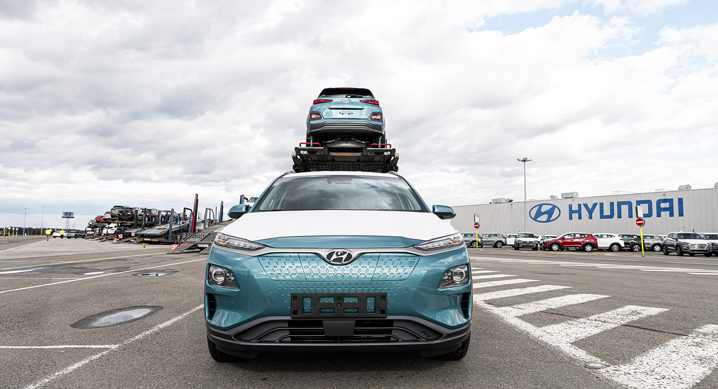Hyundai has been one of the manufacturers that have bet the most on electric mobility. It has a program that has spanned from electric cars, hybrids, plug-in hybrids, and even hydrogen models. It is a project that is now about to receive an extra boost that seeks to locate itself in a full swing market.
According to Reuters, Hyundai is finalizing the start-up of a new production line for electric cars, which will come into operation in 2021, while a second one will do so in 2024. All to gradually increase production capacity until it reaches one million units a year by 2025.
A figure that we can compare with the 86,434 units sold last year between the brands of the Hyundai group and KIA, which has allowed them to surpass Volkswagen, with 73,278, but very far from the absolute leader, Tesla with 367,000 units.
And it is that Tesla is precisely one of the main motivations of the Hyundai update in its commitment to the electric car.
According to Reuters, which cites an anonymous source from within Hyundai, Tesla’s threat was not taken seriously in its first phase, as it focused on high-end models away from the bulk of Hyundai’s sales. But that changed in 2017 with the launch of Model 3, which raised Koreans’ concerns. A Model 3 that from the Asian brand has been considered “a strategic victory” as it is well ahead of its main rivals in aspects such as batteries and software.
A Tesla that has seen its sales soar in each year, even during the impact of the coronavirus crisis, which has triggered its market capitalization, which already multiplies Hyundai’s by 10.
To achieve this, Hyundai has sought an alliance with South Korea’s top three battery manufacturers, with which it has signed a unique agreement so far in the automotive industry. The group is the first to close deals with Samsung, LG, and SK Innovation, which in addition to supply, will be accompanied by R&D work in addition to launching joint facilities for the production of batteries.
But in this regard, Hyundai also faces internal problems from some workers concerned about the reduction of jobs that may lead to simpler systems. That is why the unions are pressing for the brand to adopt measures for the own production of elements such as motors and batteries.
There are also pressures on the commitment to the hydrogen car. A technology-driven decisively by the brand that is facing a commercial reality where the data at the moment is overwhelming in favor of the battery-powered electric vehicle.
By 2025, Hyundai will have two hydrogen models and up to 23 battery-powered models. As for sales, worldwide last year, 7,707 cars were delivered with a fuel cell and more than 1.68 million electric.
Something that seriously questions the group’s commitment to this technology, even among their unions, sees how most car manufacturers abandon this system, being confined to industrial applications.

